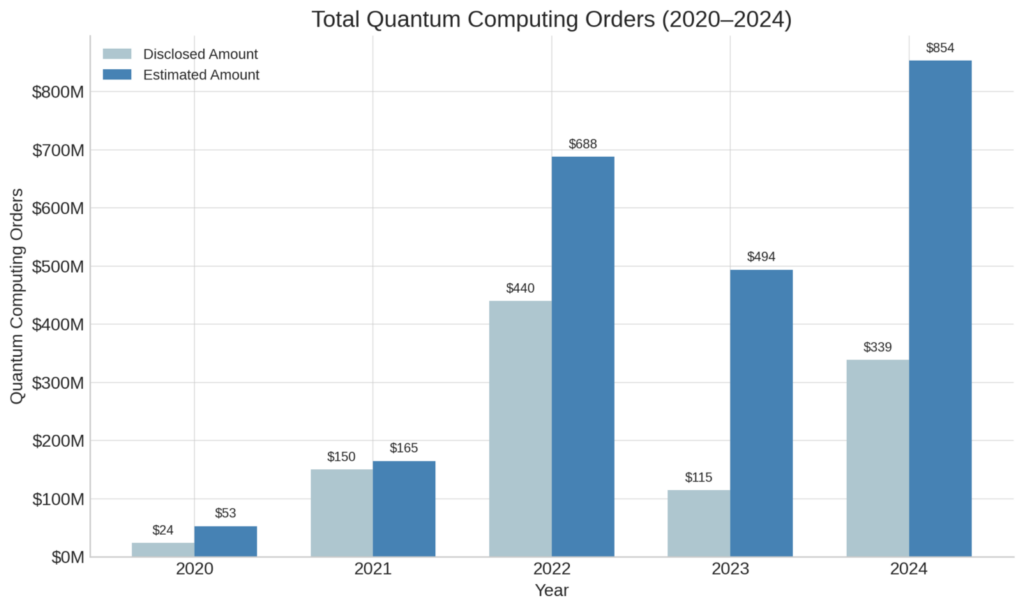Quantum computing may still feel like tomorrow’s technology, but this week’s updates show that it’s already shaping today’s infrastructure, security, and AI efficiency. From Paris to Quebec to Ankara, startups and global players are building the hardware, policies, and partnerships that will serve as the baseline for the next computing era. Whether it’s carbon nanotubes powering new qubits, telecoms trialing quantum-safe encryption, or compressed AI models running faster with less energy, the pace is picking up. Here are the five most important stories to keep an eye on, especially if you’re watching names like IonQ (IONQ) or Juniper Networks (JNPR).
Claim 50% Off TipRanks Premium and Invest with Confidence
- Unlock hedge-fund level data and powerful investing tools designed to help you make smarter, sharper decisions
- Stay ahead of the market with the latest news and analysis so your portfolio is always positioned for maximum potential
Before we begin with this week’s recap, let’s examine the chart below, which clearly illustrates the increasing demand for quantum systems on the global stage. This suggests wider adoption across more geographies and sectors, as buyers seek to diversify risk and test systems at smaller scales.

C12 Adds Key Hire as It Scales Up Carbon Nanotube Quantum Tech
C12, a private Paris-based quantum startup, has brought in Lydia Baril as Head of Innovation & Partnerships to help lead its growth in a competitive and fast-moving sector. Baril brings a global track record, having held previous roles at Microsoft (MSFT), Pasqal, Oxford Quantum Circuits, and Denmark’s DTU. She holds a Ph.D. in physics and is credited with 28 publications and seven patents in the fields of quantum and nanotechnology.
Baril will report directly to CEO Pierre Desjardins and oversee research partnerships, IP strategy, and public funding opportunities.
Turkcell Tests Quantum-Safe Encryption with Juniper and ID Quantique
Turkcell (TKC) is pushing telecom cybersecurity forward with a new proof-of-concept for quantum-safe network protection. The company worked with Juniper Networks (JNPR) and ID Quantique, now a subsidiary of IonQ (IONQ), to integrate quantum key distribution into its 5G mobile backhaul.
The test successfully combined QKD with Juniper’s MACsec and IPsec frameworks. This safeguarded both encrypted traffic and precision timing protocols critical to mobile network performance. The trial utilized ID Quantique’s Clavis XG and Clarion KX systems, preserving 5G timing accuracy while supporting quantum-resilient encryption.
Turkcell’s move reflects growing industry interest in scaling secure communications ahead of future quantum threats.
Canada Is Going All In on Quantum Security
The Canadian government is setting a clear timeline to protect its federal IT systems against future quantum computing threats. According to a roadmap issued by the Canadian Centre for Cyber Security, all non-classified systems must transition to post-quantum cryptography by 2035.
The roadmap suggests that threat actors may already be collecting encrypted data for future decryption. Ottawa is urging agencies to audit their infrastructure and engage vendors early to ensure system compatibility and reduce long-term costs.
Multiverse Computing Partners with PINQ² for AI Compression in Canada
Spain’s Multiverse Computing is expanding into Quebec through a new partnership with PINQ², a Canadian quantum innovation platform. The company’s CompactifAI system utilizes quantum-inspired tensor networks to reduce AI models by up to 80%, while cutting energy consumption by 50% and enhancing inference speeds by 1.8 times.
The partnership enables Canadian firms to access, test, and deploy large language models, such as Meta’s (META) LLaMA 3.1, on sovereign infrastructure. Target sectors include defense, energy, and life sciences.
Multiverse’s entry supports Canada’s goals around AI sovereignty and energy-efficient compute solutions.
New Study Sets Limits and Goals for Satellite-Based QKD
Researchers from IEEE have modeled the physical limits of satellite quantum key distribution, focusing on photon loss, signal noise, and bit error rates. Protocols like E91 and BBM92 were evaluated for their viability in space-based communication.
The study also explored the role of unmanned aerial vehicles as flexible relays for hybrid quantum networks. The analysis helps define real-world parameters for building scalable, secure global QKD systems.
Using Tipranks’ Comparison Tool, we’ve assembled the tickers mentioned in the piece alongside notable quantum stocks on Wall Street. This helps all investors get a broader perspective on each stock and the industry as a whole.

















